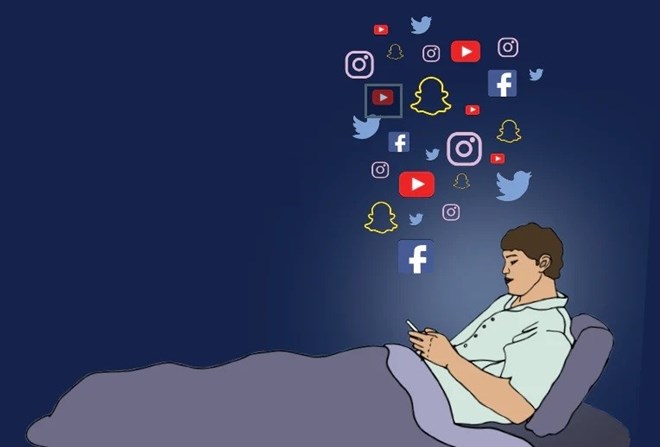Wednesday September 25, 2024
By Abdi Musse

The most valuable commodity in contemporary society transcends traditional assets such as gold or oil; it is, in fact, your attention. In an era dominated by digital interactions, the selection of whom to focus on and the manner in which one engages with the surrounding environment have emerged as the most coveted resources. Social media networks, entertainment conglomerates, and advertising firms are acutely aware of this reality, having constructed vast enterprises centred on the ability to capture and retain your attention.
Consider, for a moment, a hypothetical scenario in which no individual accesses social media for a brief period of one or two days. In this situation, the habitual scrolling, liking, and sharing would cease entirely. Such a disruption would inevitably lead to the disintegration of the business models underpinning these platforms.
Do we value our attention as a Valuable Resource? In the digital landscape, the significance of human attention has escalated, particularly as social media entities compete fiercely. Corporations have come to understand that attention is not only valuable but also limited, and this scarcity inherently fuels demand. Consequently, they have taken extensive measures to treat this limited resource as a form of currency within the digital marketplace, impacting nearly every facet of our daily lives. From the precision of targeted advertisements to promoting and consuming academic literature, human attention remains a pivotal element (Heitmayer, 2024; Hyland, 2023).
Moreover, the architecture of social media extends beyond the mere acquisition of attention; it is designed to foster prolonged engagement. Algorithms are meticulously crafted to present content that captivates users for extended durations. This often entails showcasing material that resonates with pre-existing beliefs or elicits strong emotional responses. Such dynamics give rise to "filter bubbles," wherein individuals' perspectives become increasingly constricted and their viewpoints more extreme, all in pursuit of maintaining their engagement with the platform (Somazzi et al., 2023). Users are enticed not solely by the desire for entertainment but also by the platform's facilitation of the dopamine-driven pursuit of engagement.
Do we actually understand the emotional manipulation and addictive design? These platforms function as attentional frameworks, subtly directing and sustaining our emotional and cognitive resources in ways that frequently go unnoticed. Through meticulously designed content, they entice us into a cycle of seeking validation, employing emotionally resonant posts to capture our attention for extended periods. This phenomenon is intentional; it is a product of deliberate design. The longer we engage with emotionally charged content, the more data we generate, allowing algorithms to refine our experiences and ensure our return (Voinea et al., 2024). Reflect on the case of a 14-year-old girl from the United Kingdom who has sadly passed away, having taken her own life, a decision heavily swayed by the material she encountered on Instagram. Such occurrences are alarmingly frequent globally, yet most social media platforms continue to overlook the detrimental effects their services have on the mental health and overall well-being of numerous young individuals and adults.
While this may appear innocuous, the implications of such continuous engagement are significant. The addictive nature of social media interface design is associated with various psychological challenges, including anxiety, depression, and emotional fatigue (Giraldo-Luque et al., 2020). The more we allocate our attention to platforms that do not prioritize our well-being, the more susceptible we become to emotional manipulation and behavioural conditioning.
Contemplate the potential impact if we collectively decide to disengage. If no one accessed their Instagram, Facebook, X, YouTube, Rumble, TikTok or any other social media platform for a single day, social media platforms would face a substantial reduction in influence. Their algorithms, which rely heavily on ongoing user interaction, would struggle to deliver the content they have carefully curated to maintain our engagement. The likes, shares, and comments that underpin their business models would significantly decline. In retrospect, this simple act of withholding attention—even for just a day or two—would expose the vulnerability of these seemingly invincible digital entities.
Perhaps we need a more balanced approach to connectivity! It is essential to recognize that social media is not inherently detrimental. It enhances connections, promotes global dialogues, and is a vital information source for many individuals. However, the disproportionate nature of our engagement raises alarms. When our attention is commodified, it becomes easy to overlook our power as individuals. Each time we log in and every moment we spend scrolling, we contribute to a system that, in order to regain authority over this invaluable resource, it is essential to adopt a more mindful and balanced strategy regarding social media usage. This entails recognizing the emotional and psychological factors involved and establishing limits that enable us to utilize these platforms for their original purposes: fostering connections and sharing information while avoiding the pitfalls of perpetual engagement.
The most significant asset you possess is not your material belongings or financial resources, but rather your attention. How you allocate this attention can influence industries, create empires, and, in the context of social media, even bring them down.
In conclusion, as a reader, I encourage you to reflect on the potential of a social media platform designed to inherently promote the common good and enhance the welfare of individuals. Such a platform would prioritize ethical business practices that focus on the overall well-being of its users. By fostering a supportive environment, it would contribute to the mental health of its community and lead to increased profitability, as satisfied and well-cared-for users are more likely to engage positively with the platform. This stands in stark contrast to algorithms that prioritize profit over the mental well-being of users, often resulting in detrimental effects on their psychological health.
Abdi Musse is a commentator on global geopolitics and contemporary tech trends. He could be reached: [email protected]